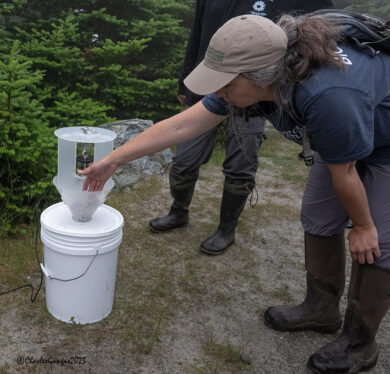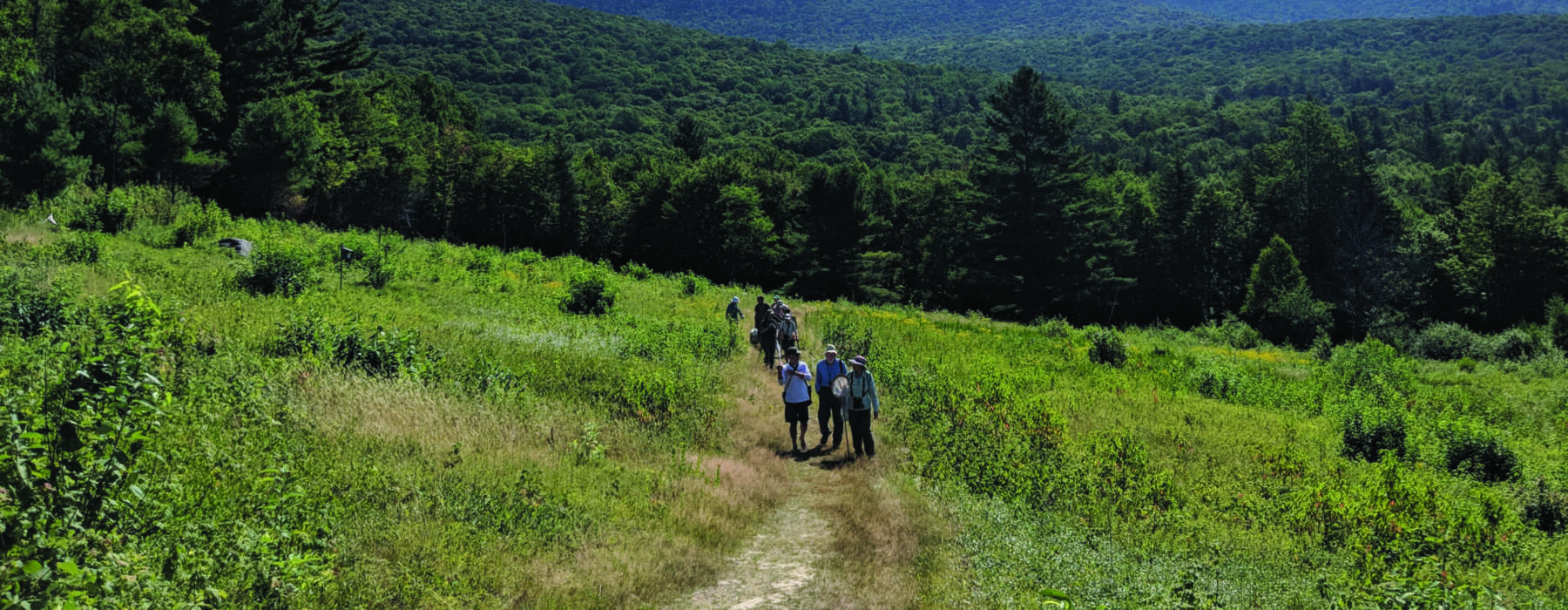Our Mission and Vision
The Vermont Center for Ecostudies advances wildlife conservation across the Americas through research, monitoring, and community engagement. We envision a society that sustains healthy ecosystems through science-based decision making.
How We Work
At VCE, we keep a watchful eye on species and ecosystems to assess their status and investigate environmental threats. Working closely with our partners, we develop knowledge gained from field studies into tools and strategies for biodiversity protection.

© Charles Gangas
We excel in recruiting, training, and coordinating volunteers (community scientists) to gather and share ecological information in a rigorous, cost-effective manner. In fact, our approach has received international recognition as a model for the collection, organization, and dissemination of biodiversity data. We also specialize in convening conservation professionals and land stewards to implement evidence-based practices that benefit vulnerable species and ecosystems throughout the Northeast, the Caribbean, and beyond.
Communication for Conservation Impact
We regularly share our findings with other scientists, policymakers, and land managers. We publish results in peer-reviewed journals, guide public policy with topical reports and legislative testimony, and freely share data and knowledge through dozens of online platforms.
More than anything, VCE succeeds with action. Here are a few examples:
- When our biologists were the first to discover toxic mercury moving through the food web, VCE gave policymakers the science they needed to reduce mercury pollution.
- When federal and international wildlife leaders needed new ideas to protect grassland birds, they turned to us to develop strategies that work from Canada to South America.
- When VCE staff and community scientists discovered that bumble bees were vanishing from Vermont, we used science to support their protection under state law.
- And when conservationists from Virginia to Nova Scotia wanted to locate and protect vernal pools, they turned to us for leadership on a coordinated mapping initiative.
Even as we lead regional and international collaborations among scientists and natural resource professionals, we continuously engage general audiences as well. We post, blog, write, lecture, live, breathe, and photograph nature. We produce educational newsletters and videos, and we give interviews to local and national media outlets. We’ve even hosted a popular radio show to share our enthusiasm for understanding and conserving nature. After all, as our founding director, Chris Rimmer, likes to point out, conservation is as much about people as it is about ecology. It’s one reason our motto is Uniting People and Science for Conservation.
NEXT: Read more about what sets us apart.
Interested in having a VCE conservation biologist speak at your event, or lead a field outing?
Please fill out our Speaker Request Form to start the process.

